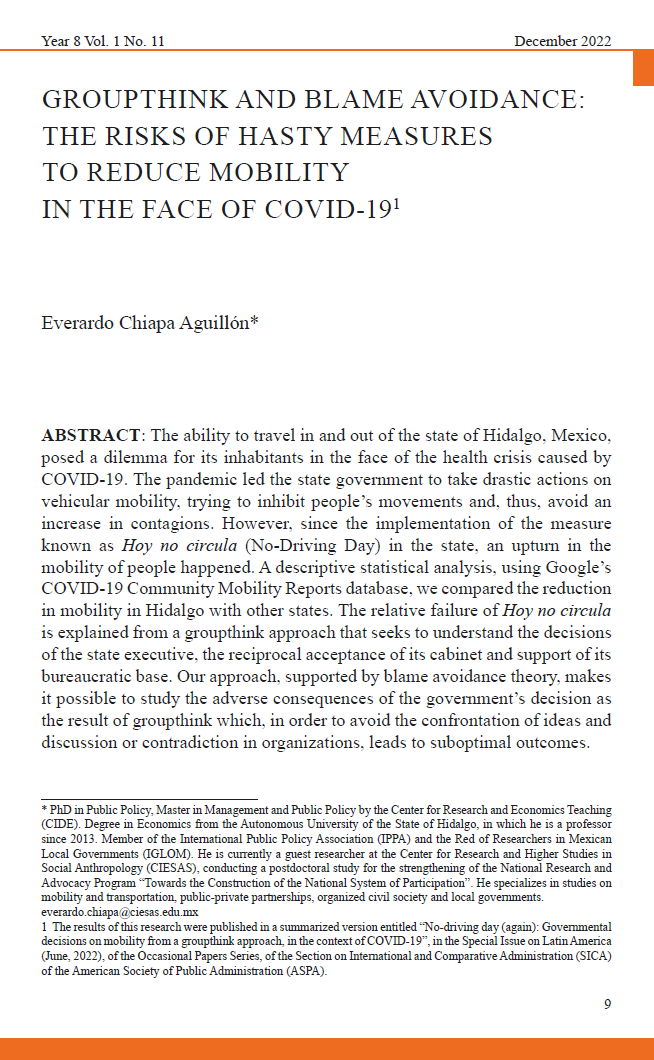Groupthink and blame avoidance: The risks of hasty measure to reduce mobility in the face of COVID-19
Resumen
The ability to travel in and out of the state of Hidalgo, Mexico, posed a dilemma for its inhabitants in the face of the health crisis caused by COVID-19. The pandemic led the state government to take drastic actions on vehicular mobility, trying to inhibit people’s movements and, thus, avoid an increase in contagions. However, since the implementation of the measure known as Hoy no circula (No-Driving Day) in the state, an upturn in the mobility of people happened. A descriptive statistical analysis, using Google’s COVID-19 Community Mobility Reports database, we compared the reduction in mobility in Hidalgo with other states. The relative failure of Hoy no circula is explained from a groupthink approach that seeks to understand the decisions of the state executive, the reciprocal acceptance of its cabinet and support of its bureaucratic base. Our approach, supported by blame avoidance theory, makes it possible to study the adverse consequences of the government’s decision as the result of groupthink which, in order to avoid the confrontation of ideas and discussion or contradiction in organizations, leads to suboptimal outcomes.




